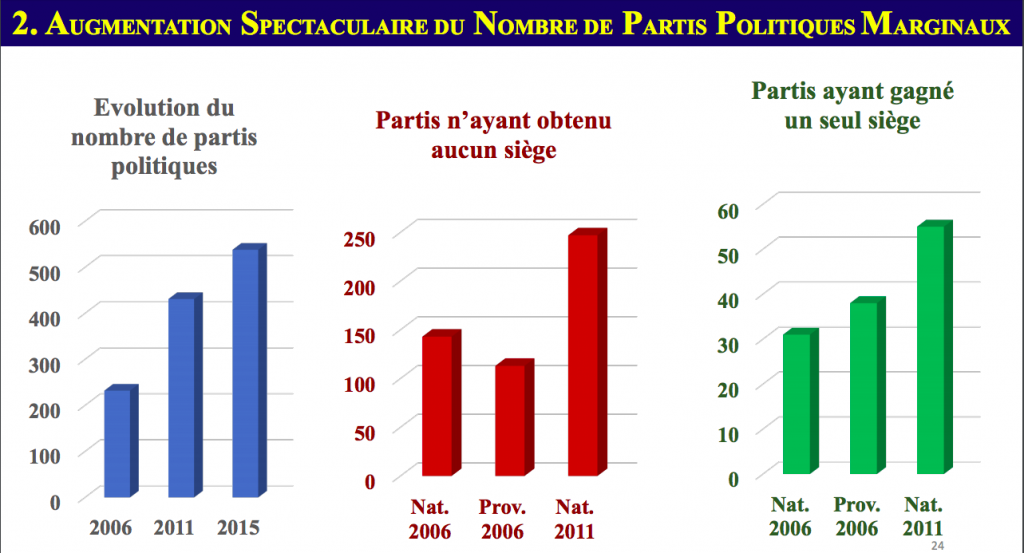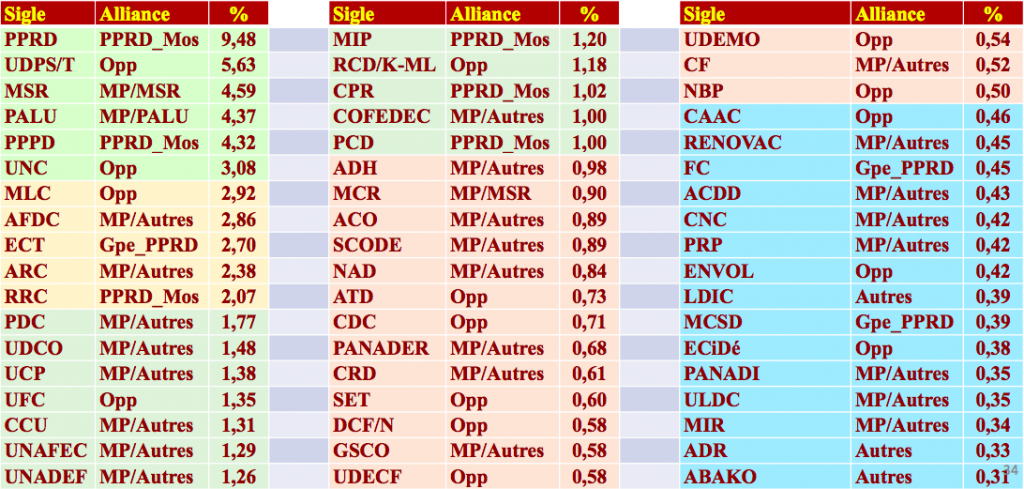Congo’s national assembly passed a new electoral law today. While it has become commonplace for pundits to reject anything proposed by the ruling coalition as a tactic to delay elections, we should not throw this particular initiative out with the bathwater.
Most of the controversy enveloping the law concerned the « seuil de représentativité »––a minimum percentage of votes that parties have to obtain in order to be represented in the various legislative bodies. The current electoral law, forged during the peace process, aimed at creating the highest degree of inclusivity to ensure that no group would feel underrepresented. It allowed for proportional representation: in an electoral district with 13 seats, you could be the 13th most popular candidate and still become an MP.
The law worked, perhaps a little too well. The 500 seats in the national assembly today are shared among 148 different parties and 14 independents. According to an analysis provided by the election commission to the national assembly, over 50 political parties in parliament only have one seat.
This has made governing difficult and, arguably, has increased corruption. People in the presidency often complain that in order to get laws passed they have to spend millions buying off parliamentarians.
The current law imposes a requirement that most of those 148 parties currently represented would struggle to meet. All of their candidates across the country together would have to win a total of 1 percent of the vote to be eligible to take a seat in the national assembly (for provincial MPs, it is 3 percent of votes in the respective province). Currently, around 45 million people have registered to vote, suggesting that a party’s candidates would have to win at least 450,000 votes to be able to take a seat in parliament.
Again, according to the electoral commission, only 23 of the 148 parties currently in the national assembly would fulfill this requirement, including eight opposition parties (UDPS, PDC, MLC, ARC, UNC, MSR, UNAFEC, and RCD/K-ML). Well-known opposition figures such as Martin Fayulu, Franck Diongo, Diomi Ndongala, Jean-Claude Vuemba, and Delly Sesanga would lose their seats in parliament. It could also prompt regional strongmen––Eugène Serufuli and Julien Paluku in North Kivu, José Makila and Jean-Lucien Bussa in Equateur––to lose their seats. It also appears that independents would lose their seats––a consequence some have decried as unconstitutional––unless they create an umbrella grouping together.
The major advantage of this electoral reform would be a more manageable political scene, one which would promote the culture of more accountable and disciplined political parties and a foil for the cult of personality that has led to local strongmen to create their « parties of one. »
The major flaw is that it would favor well-resourced parties that can afford to spend millions campaigning across the country––an ability that in the Congo often comes with access to state funds. It would also eliminate the ability of small ethnic minorities to feel represented, although that has not necessarily happened with the current electoral law, either.
In any case, it would bring about a huge reshuffle of the Congolese political deck. Hundreds of national and provincial MPs would have to join one of the major political parties or face political oblivion.


